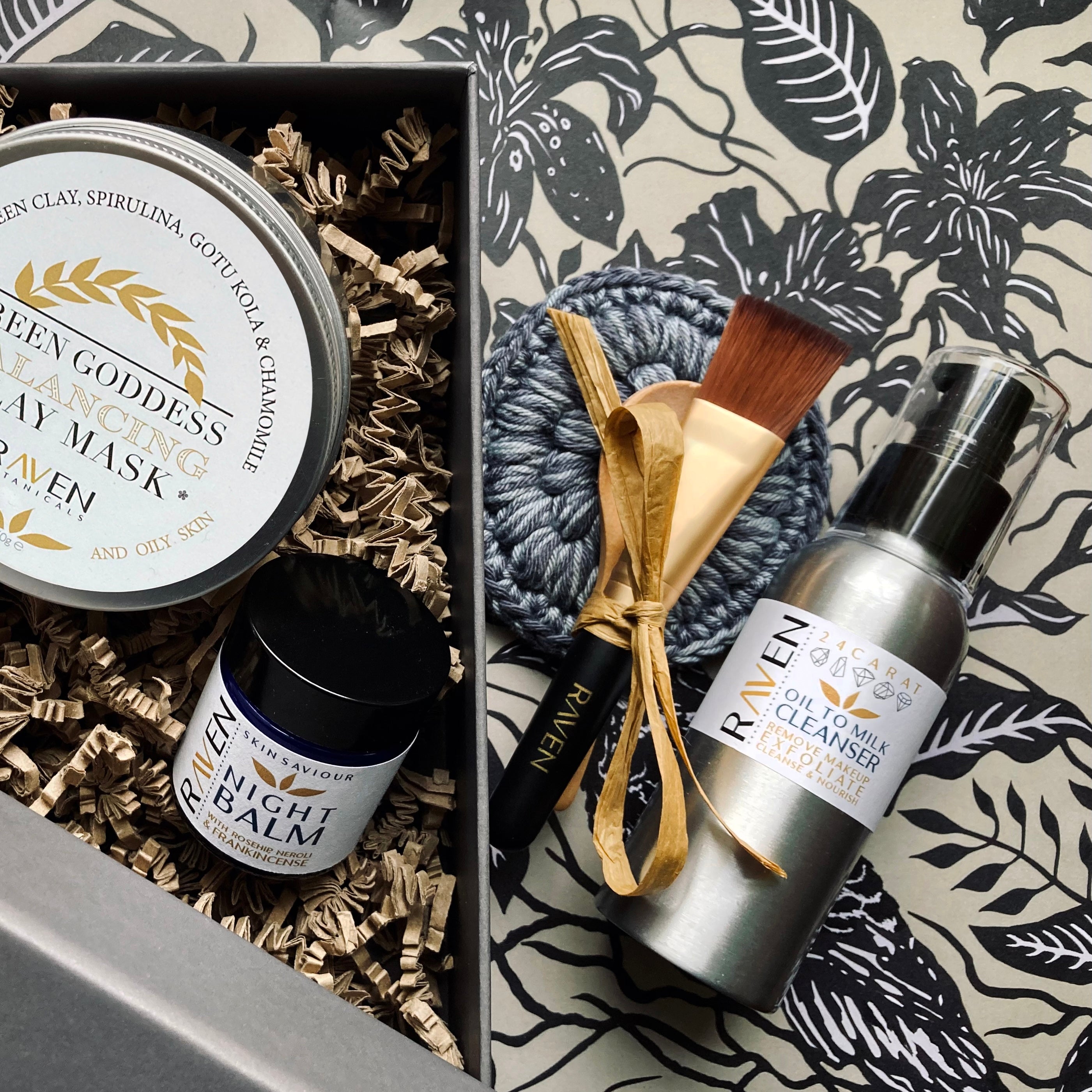Papaya Enzyme Skincare | Gentle Exfoliation & Scar Renewal
From Fruit Bowl to Skincare Ritual
Papaya is more than just a tropical fruit tucked into fruit salads and beachside cocktails. Known as the “fruit of angels” by Christopher Columbus, papaya has long been valued for its sweetness, vibrancy, and medicinal properties. Across cultures in South America, India, Polynesia, and beyond, papaya was treasured not only as food but as a healing plant for the skin and body.
At the centre of its magic lies papain , a natural enzyme found in the fruit’s flesh and latex. For centuries, papain was used to tenderise meat and soothe digestive complaints. In skincare, it works just as powerfully by gently dissolving the glue-like proteins that bind dead skin cells together, helping new, healthy cells emerge to the surface.
This is why papaya has become a favourite in natural skincare rituals. It is gentle yet effective, deeply renewing without the harshness of scrubs or strong acids.

Table of Content
Why Your Skin Loves Papaya and Papain
Papaya fruit and its active enzyme papain offer a multi-layered approach to skin renewal:
Gentle Exfoliation - Papain loosens dull, dead cells from the surface without the need for gritty scrubs. This enzymatic exfoliation is kinder to the skin barrier, leaving skin smooth and fresh.
Brightening Boost - Papaya is naturally rich in vitamin C and carotenoids, helping to reduce pigmentation, encourage collagen production, and restore luminosity.
Scar Softening - Regular use of papaya enzyme in your skin care routine can help fade post-acne marks and even soften the look of scars. By encouraging healthy cell turnover, papain gradually refines uneven texture and promotes a clearer complexion.
Calming and Healing - Papaya is abundant in antioxidants such as beta-carotene and flavonoids, which ease inflammation and support the skin’s natural healing processes.
Moisture and Suppleness - Beyond exfoliation, papaya fruit itself is rich in water and natural sugars that hydrate and plump the skin, leaving it soft and dewy.
In short, papaya and papain do not just resurface. They restore balance and radiance in a way that feels both gentle and transformative.

Folklore and Healing Traditions
The history of papaya is steeped in symbolism and practical healing. In Mayan and Aztec cultures, papaya was seen as a plant of renewal, often offered in rituals of cleansing and rebirth. Crushed papaya pulp was applied to wounds and burns, accelerating healing and reducing infection, something we now know to be thanks to papain’s antimicrobial and anti-inflammatory properties.
In Ayurvedic medicine, papaya was believed to balance pitta (heat) in the body and was used to cool inflamed, aggravated skin. Polynesian communities traditionally used poultices of mashed papaya fruit to draw impurities from the skin and soothe insect bites.
These traditions highlight papaya as more than nourishment. It was a plant of comfort and repair, bridging the practical with the spiritual. When we include papaya in modern skincare rituals, we are carrying forward this lineage of renewal and protection.
Where You’ll Find Papaya in Raven Botanicals
At Raven Botanicals, we weave papaya and papain into some of our most transformative formulations.
Rescue Serum A soothing yet potent blend for skin in need of rescue. Papain works alongside nettle, hemp, and marine algae to encourage renewal while calming irritation. This serum is especially loved by acne-prone skin, where papaya’s gentle exfoliation helps refine texture, soften scars, and fade post-blemish marks.
Golden Hour Clay Mask A ritual steeped in radiance. Mineral-rich clays are blended with papaya enzymes to lift impurities and refresh tired skin. The result is a natural luminosity, skin that looks like it has been kissed by sunset light.
24 Carat Cleanser A golden oil cleanser that transforms into a silky milk. Papaya enzymes break down impurities, excess oils, and dead skin cells while maintaining the skin’s natural moisture. Every cleanse becomes a moment of renewal.
Together, these three products showcase papaya’s versatility, from daily healing to indulgent weekly rituals.
How to Use Papaya Enzyme in Your Skincare Ritual
Papaya-based skincare is gentle enough for regular use and can be tailored to your needs.
For daily renewal, apply Rescue Serum each evening to encourage cell turnover, fade marks, and restore calm to stressed skin.
For a weekly ritual, use Golden Hour Clay Mask once or twice a week to deeply refresh and brighten.
For a cleansing treatment, massage 24 Carat Cleanser into dry skin, emulsify with warm water, and enjoy a gentle exfoliating cleanse that leaves your skin glowing.
Consistency is key. Over time, papain softens scars, evens skin tone, and restores the complexion’s natural vitality.
“Papaya enzymes are natural brighteners that work wonders on hyperpigmentation, helping fade dark spots, sun damage, and post-acne marks.”
Summary
Papaya and papain embody the perfect balance of tradition and science. This tropical fruit has been used for centuries to heal, soothe, and renew, and today its enzyme is a trusted ally for those seeking gentle exfoliation, brighter tone, and softer scars.
At Raven Botanicals, we have harnessed the renewing power of papaya in our Rescue Serum, Golden Hour Clay Mask, and 24 Carat Cleanser, so your daily rituals can draw on the timeless magic of this fruit. With every use, papaya supports skin that feels calm, smooth, and naturally radiant.
Frequently Asked Questions
Is papaya enzyme safe for sensitive skin?
Yes. Papain is gentler than scrubs or strong acids, making it suitable for most skin types, including sensitive.
Can papaya help with acne scars?
Absolutely. Papain promotes new cell growth, which can gradually soften the look of scars and fade pigmentation caused by acne.
Does papaya brighten skin?
Yes. Papaya’s vitamin C and natural enzymes help even out tone and restore radiance.
Can I use papaya skincare every day?
Yes. In formulations like Rescue Serum and 24 Carat Cleanser, papain is balanced and safe for daily use. Masks are best 1 to 2 times per week.














